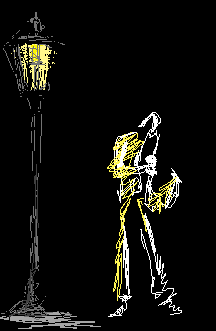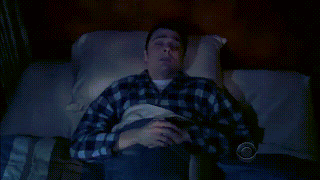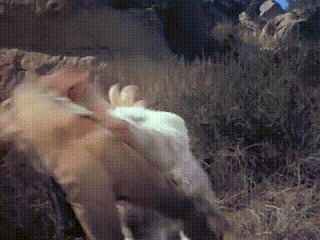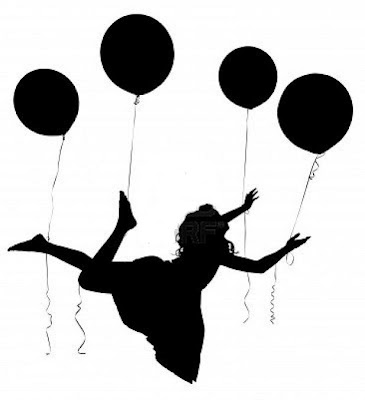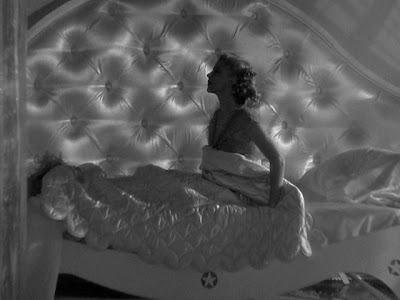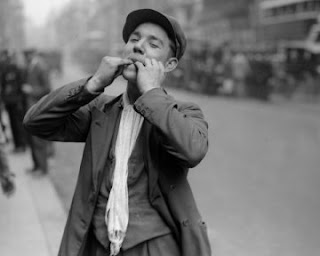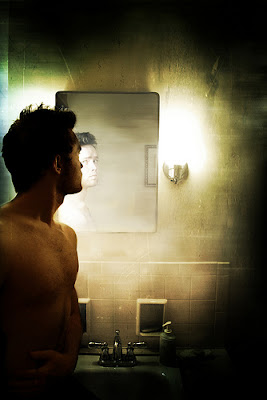I have a horrible confession to make. I liked English class. I liked it so much I had to hide it. I never said anything, never contributed a single comment to any discussion, though my mind was teeming with ideas about everything we studied.
It was decades later, when I was an adult and went back to school, that I found the courage to say the things I felt and saw. By this time my perceptions had shifted, of course. Even the most familiar poem wasn't the same; someone had gone in there and changed it, in every textbook in all the world.
I guess Auden's
As I Walked Out One Evening is my favorite poem because it makes me want to scream that I ever dared to write poetry and try to get it published. I DID get a dozen or so of my poems published in small literary mags, but maybe seven people bothered to read them, mostly the contributors. Sometimes I wondered if the editor had bothered to read them at all.
Example. I wrote a poem called
Lightning - God must've been punishing me for writing a poem called
Lightning, because in the final printed version it came out
Lightening.
"Well, it's only one letter different," squawked the 19-year-old assistant editor who had neatly inserted an error where there was none before. She must have thought
I had made a spelling mistake.
So now my poem, which HAD been about childhood sexual abuse and doing hard time in a mental institution, was suddenly about a much more powerful subject: Coffee Mate "lightener", guaranteed to replace cream with a metallic-tasting petroleum-based powder which would never go sour.
So much for MY adventures. In my last post I decided to illustrate that favorite poem from high school (written by that dry, craggy desert of a man, W. H. Auden), and in doing so, some of that English class stuff came back to me.
My teacher in high school, Mr. Griffin (probably dead by now, I realize with a shock) read this one out loud one day, and I was riveted. Maybe it was the
way he read it.
The class called this teacher Griffy Baby (though not to his face), and he was given to telling tales out of school, recommending we watch a literary-based movie called
Carry On Up the Jungle. Sometimes when he was tired of teaching he told funny stories about his kids, one of whom resembled a baby Dylan Thomas. Then there was the day he showed us a home movie of a tawdry drama he had filmed with his drunken friends.
Griffy Baby was partial to giving me As, but was curious as to why I never said anything in class. My soul was so crushed with social isolation and constant, relentless bullying that I didn't dare open my mouth. But I was grateful for that magnificent poem, and I never forgot it.
So to make up for my silence in class, I want to do a blow-by-blow analysis here and now, which is maybe appropriate given Auden's legendary sexual orientation. (He also wrote an infamous poem called
The Platonic Blow which I don't think I will post here, but I do encourage you, even
urge you to look it up. It'll make your literary hair stand on end, or something else if you're gay. Short of out-and-out porn, it's the most sexually-explicit writing I have ever seen.)
As I walked out one evening,
Walking down Bristol Street,
The crowds upon the pavement
Were fields of harvest wheat.
When the poem opens, the scene is just so. . .
normal. The poet is out for a nice little stroll. Just walking down the street. Then he sees crowds upon the pavement. . . not other people strolling along, but
crowds. Assembled for what? And these crowds, which sound about as friendly as the spectators at a Roman coliseum, are fields of harvest wheat. I mean, they don't
look like wheat or
sound like wheat or
smell like wheat or
taste like wheat. This is no synonym, folks, it is that deadliest of things: a metaphor! And speaking of deadly, isn't it just a little obvious that these wheaten folk seem all ready for the scythe of the Grim Reaper? "Harvest" wheat, indeed.
And down by the brimming river
I heard a lover sing
Under an arch of the railway:
'Love has no ending.
Arch of the railway. This is why I included in my last post's illustrations quite a few images from a superb movie called
Notes on a Scandal, with Cate Blanchett playing a 40-year-old teacher having an affair with a 15-year-old student. Having to meet in such a drippy place smells of the illicit, or at least of the damned uncomfortable. And that brimming river: hey, that's
assonance, folks! He does it three times, too, which makes it magical. The river could be Lethe, the river of oblivion, which would surely match the dire tone of the rest of this thing. And brimming, like tears, like a cup about to run over. But that nasty cup appears later on.
'I'll love you, dear, I'll love you
Till China and Africa meet,
And the river jumps over the mountain
And the salmon sing in the street,
'I'll love you till the ocean
Is folded and hung up to dry
And the seven stars go squawking
Like geese about the sky.
Here he seems to be introducing silly mythical images which would be highly inappropriate if it weren't for the sing-songy, nursery-rhyme-esque form of the poem, with its strict rhyme and meter. Personally I wonder why he spends so much time on these innocent-sounding pronouncements, when I always thought the dank, furtive image of the arch of the railway implied meeting up with a prostitute, male or female.
Idealism, maybe? Or is this guy or girl, or guys or girls, just incredibly stupid, given to ludicrous hyperbole? In any case, all these blatherings seem sum-up-able in one word: "Forever." I will love you, dear, I'll love you. . . f
or all eternity.
'The years shall run like rabbits,
For in my arms I hold
The Flower of the Ages,
And the first love of the world.'
The years run like rabbits, as if to say, my, how time flies when you're having fun! Or is it something else? They may be running away, but it has nothing to do with
us chasing after them
. Some day, such as NOW, we may fervently wish those rabbits would slow down. Rabbits also imply a sort of dumb, embarrassing fertility, not to mention the rabbit being pulled out of a hat ("Nothing up my sleeve!") and Alice's white rabbit, who is somehow always running "late". (And note the double meaning of late!)
And just what does "rabbiting on" mean? That you talk too much?
And that "first love of the world" cannot be anyone but Eve, the first woman. Hmmm, I wonder what she charges?
But all the clocks in the city
Began to whirr and chime:
'O let not Time deceive you,
You cannot conquer Time.
I like this. I
love this. I love the "device" of Time speaking to us, of all the clocks in the city starting to protest the bullshit of the lovers writhing under the arch. The audacity, too, of allowing Time to address us, as if God Himself decided to step up to the plate (which He does, all the time, in the Old Testament).
And already we have our warning: my teacher read this in a slightly smug tone. "You cannot conquer time."
'In the burrows of the Nightmare
Where Justice naked is,
Time watches from the shadow
And coughs when you would kiss.
This is one of those ravishing verses of poetry that you don't want to touch because it's just so fucking magnificent. I wanted to write that on my term paper - "fucking magnificent" - but I didn't, and still got an A.
But he's doing the same thing here, capitolizing and I suppose personifying the Nightmare, Justice, etc. Justice being not
blind, but naked. Pull down the blinds, please. And how about that little cough, ahem. Excuse me. Do you know who's in charge here?
'In headaches and in worry
Vaguely life leaks away,
And Time will have his fancy
To-morrow or to-day.
Nobody wants to read this because it makes them groan inwardly, especially those first two lines. It's so bloody true, even in the most goal-directed, achievement-stuffed life. And Time, that wonderful personified Wizard of eternity,
will have his "fancy", much as a rich man might pick out a particularly tasty prostitute from the lineup. Fancy is a silly, ephemeral, frou-frou sort of thing, the opposite of plain: fancy this, fancy that. And it also means fantasy. The "tomorrow or today" is sort of like setting up a delivery time for a parcel: "oh, I'll be here tomorrow, I think, you can bring it round then. Or, wait a minute, I'll be home today."
'Into many a green valley
Drifts the appalling snow;
Time breaks the threaded dances
And the diver's brilliant bow.
I had a little trouble with this until I stole an interpretation from someone else. Green valleys are very British, of course - how green is my valley, and all that - but why is the snow (grey hair, old age) so "appalling"? It casts a pall over the valley, even obscures it completely so that the green life beneath it does not show. It might as well not be there at all. The next two lines are all shivery and liquidescent. I don't know what a threaded dance is, but I think the diver is Cupid. Once more, eroticism is shattered by that dirty old man, Mortality.
'O plunge your hands in water,
Plunge them in up to the wrist;
Stare, stare in the basin
And wonder what you've missed.
This is among Auden's most famous lines, for some reason almost always misquoted (like Dylan Thomas'
Do Not Go Gentle) as "stare, stare in the mirror". The mirror does come, but a few verses later, and in a much more disturbing manner. This one is effective, I think, because of understatement. Or: is the subject just washing his hands of the whole thing? (Didn't Pilate do the same thing? And Lady Macbeth? Oh, I'm going overboard here.)
'The glacier knocks in the cupboard,
The desert sighs in the bed,
And the crack in the tea-cup opens
A lane to the land of the dead.
Probably my favorite verse, because it makes me want to scream and never write again. Glacier, desert, crack in the tea-cup, land of the dead, where we all end up, unless you believe in Heaven, which Auden obviously does not. The safe comfort of the everyday and the brutal fact of mortality are so closely juxtaposed that we no longer take any notice. It's as close as the skin on your face.
'Where the beggars raffle the banknotes
And the Giant is enchanting to Jack,
And the Lily-white Boy is a Roarer,
And Jill goes down on her back.
This is a weird one, and I suppose it echoes the nursery-rhyme quality of some of these verses. The Giant must be a reference to Jack and the Beanstalk, but what does it mean that he's "enchanting to"? I hope not what I think. Most Americans won't know this, but the Lily-white Boy (also a strange image) is a character in an English folk song called
Green Grow the Rushes-o. Jill goes down on her back, well. . . innocence begins to prostitute itself. This is the Land of the Dead, which is beginning to resemble Hieronymus Bosch's vision of hell.
'O look, look in the mirror
O look in your distress:
Life remains a blessing
Although you cannot bless.
Yes. THIS is the verse with the mirror in it, and it has that "o look,
look -", that sense of shock, almost of horror at the inevitable, strenuously-denied passage of time. I don't want to look, but I
must look! And those ironic lines - life remains a blessing, but we're about to die so why is a blessing even relevant? And the stinging self-contempt of "YOU cannot bless", as if you have somehow, and mysteriously, lost all your power.
'O stand, stand at the window
As the tears scald and start;
You shall love your crooked neighbour
With your crooked heart.'
There was a crooked man, who walked a crooked mile. . . and the whole human condition is drawn in slanted lines.
It was late, late in the evening,
The lovers they were gone;
The clocks had ceased their chiming,
And the deep river ran on.
And thus, the soft, gentle benediction, as we lie howling and writhing in the face of eternal Hell.
Visit Margaret's Amazon Author Page!

